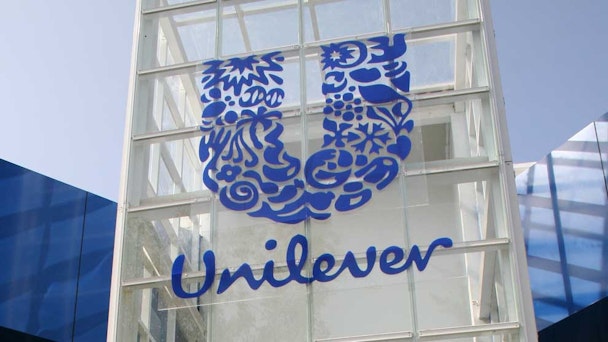The Shiny New Object Podcast: five things I learned from Unilever's Richard Bowden
Speaking on this episode of the Shiny New Object Podcast is Unilever's global brand director TIGI and former digital & ecommerce director of beauty and personal care, Richard Bowden.

five things I learned from Unilever's Richard Bowden
This time I’ve been talking to Richard Bowden, who started his career at the tender age of eight with a self-published computing magazine, and worked his way up to Unilever, via a stint at British Airways and a number of agencies in the UK and beyond. He was responsible for launching the BA app as well as entirely overhauling the way the travel industry used social media. So you’ve got him to thank for that.
His Shiny New Object is Voice Search - or maybe just ‘Voice’, the jury’s out - which he says is in danger of becoming a purely command-based tool, rather than reaching its full potential as a ‘companion’ technology. He has five Echo devices in his three bedroom house, so it’s safe to say he’s gotten to grips with the tech as it stands today.
These are the five things I learned from Richard.
1. B2B marketing demands more creativity than B2C, not less
B2B marketing gets a bad wrap, and unfortunately it’s a bit of a self-fulfilling prophecy. “As a frustrated creative, you do get annoyed that it’s dry, sending out the same old pamphlets loaded with detail rather than inspiration,” says Richard. He worked in B2B marketing in the early days of his career, when he had an insatiable appetite to disrupt and chase down budget for more creative campaigns (maybe the moral of the story is that B2B marketing teams should hire young, hungry creatives who have yet to be jaded and disillusioned by years in the industry!). The most memorable result of his efforts was a campaign for Fujitsu in which he posed toy robots carrying out different tasks. Cute.
2. Digital innovation should focus on utility rather than marketing
Richard’s brief when he went in-house at British Airways was to ‘Develop technology that delivers utility to our customers’. I would say that’s easier said than done, but it’s kind of a mouthful. But basically, their marketing tech had to be useful. The app they delivered certainly was, and in an era when brand apps were in their infancy and often little more than a vanity exercise. Two weeks into his job there, the Icelandic ash cloud fiasco happened, grounding flights around the world. Richard had the smart idea to transform the brand’s Twitter channel into a customer service tool to keep customers informed and answer questions, working as an extension of their call centre. And the idea, as many good ones do, stuck.
3. Sometimes the tech you expect to be the most useful turns out to be the least
When he joined Unilever, Richard treated himself to something called a Livescribe - a pen that promised to transcribe your handwritten notes into digital text, doubling up as a dictaphone at the same time. He planned to use it to record all of his handover meetings, thinking it was the most practical piece of tech ever created. Unfortunately it worked approximately 1% of the time and he ditched it after two (long and trying) weeks. “Often the things you think will be amazing and practical, you use only to find out they’re not quite there yet” says Richard.
4. Identifying your strengths is more important than improving your weaknesses
I asked Richard what advice he’d give to a smart, driven student wanting to get into the industry. He said he wanted to impress the importance of knowing your strengths in a culture where everyone wants to focus on identifying and improving their weaknesses. Not only is it a mega confidence-boost to be able to identify what you’re good at, but it means you know where to start when you need to reinvent yourself — something that will be key for millennials and gen-Zers in a restless world. Empowering stuff we can all take note of.
5. The ‘smart city’ of the future is already in development in Toronto
That Blade Runner-esque digital city of your Sci-Fi dreams? It’s already a thing, mate. “Toronto are building the first smart neighbourhood, Quayside. It’s got sensors to measure air quality, noise, people and their flows and needs”, Richard tells me. On one hand it’s a bit Big Brother, but on the other hand it will be fascinating to see how it plays out as an experiment. Richard’s first question, of course, is how voice will come into it - surely a tech that’s primed to play a key role.
Listen to the full episode here:
